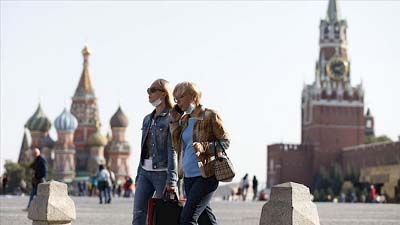
Russia starts opening up to the world post-Covid
Newswire
The world’s biggest country is set to ease its strict visa rules. Russia is potentially making access easier for British travellers, especially those hoping to make long visits.
Earlier in the summer, President Vladimir Putin signalled easier travel rules, and these are now taking effect. Foreign tourists to Russia are now able to get a visa to Russia for up to six months. Previously the standard limit was 30 days.
Details are still sketchy, but it appears that with the nation’s tourism industry in disarray, the Kremlin has decided to revert to the relatively straightforward approach to overseas visitors that prevailed in Soviet times: booking a tour or a hotel, and providing the confirmation as well as a completed application form, was all that was required.
A fairly low bar has been set for prospective visitors: they must book with an organisation registered with the Unified Federal Register of Tour Operators.
Inbound tourism, which previously was an important source of revenue in St Petersburg, Moscow and some other key locations, has collapsed as a result of the coronavirus pandemic. In the first six months of the crisis alone, industry experts said $7bn (£5bn) had been lost to the tourism economy.
Until now Russia has applied a strict policy of “reciprocity,” with visa rules for incoming tourists mirroring those imposed by the prospective traveller’s nation on Russian arrivals. It meant UK visitors had to pay over £100 for a holiday visa, as well as undergoing a gruelling application procedure.
The changes are currently moot for British holidaymakers, because any travellers arriving from the UK must quarantine for two weeks.
Last week the Russian foreign minister, Sergei Lavrov, said he regarded “the resumption of tourist exchanges” as important – but added that recognition of the Sputnik V vaccine would be part of the deal.
“Mutual recognition of vaccination certificates as soon as possible would facilitate this process,” he said.
Russia remains a niche destination from the UK perspective, with some non-standard offerings.
Intourist, the Moscow-based enterprise set up in 1929, has survived the demise of the USSR. It is currently seeking to tempt visitors with “attractions” such as a military tank experience.
“You will put on a military field uniform and ride the real tank from the Second World War or postwar years,” the firm says.
“If you wish you may ride massive armoured carrier and infantry fighting vehicle, shoot from the tank and small arms.” At the end of the tour a “combat volley and salute” are fired in the tourist’s honour.
